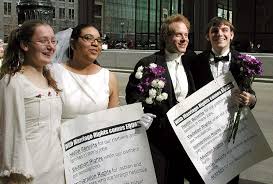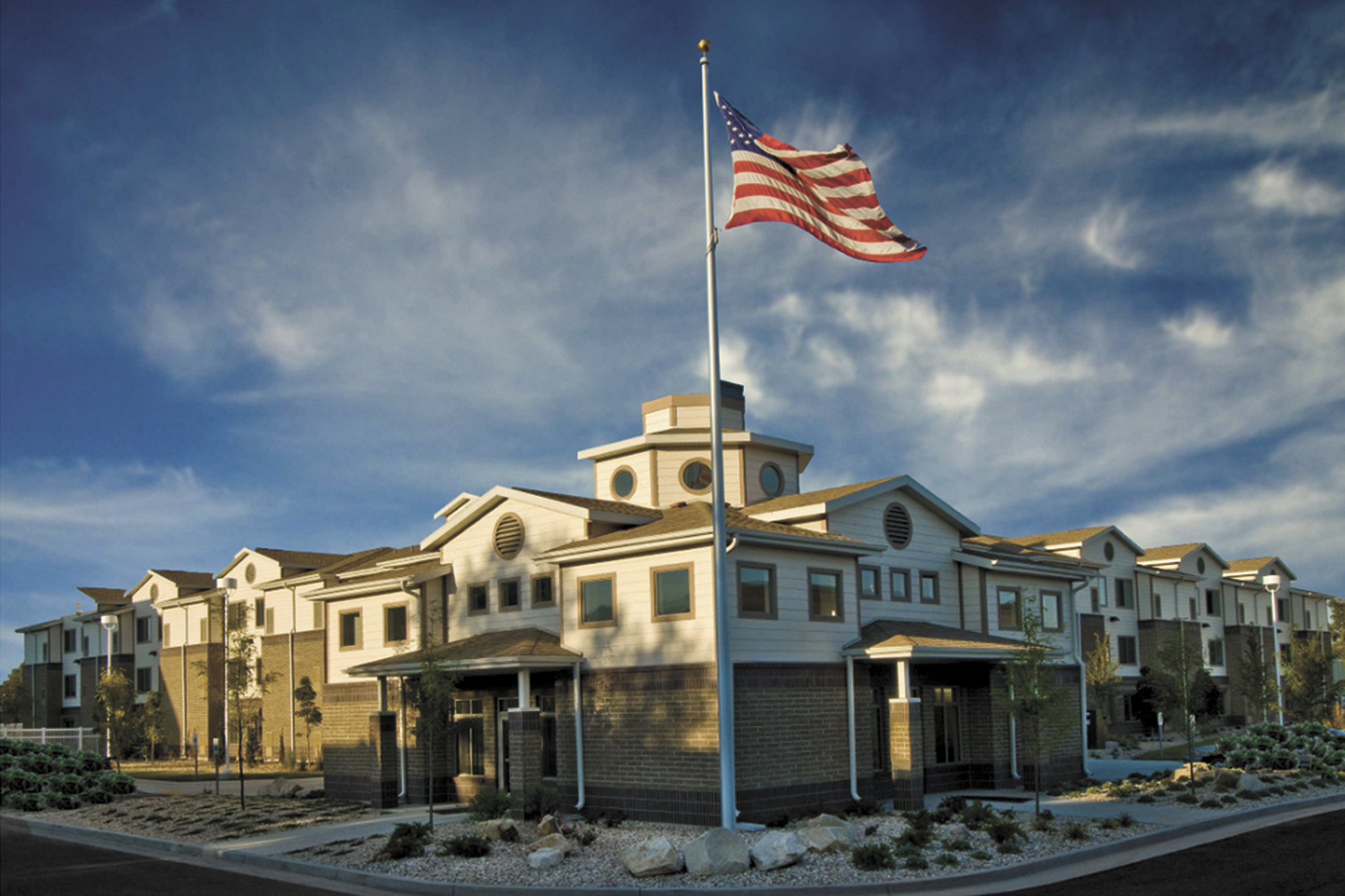Whether or not the Supreme Court issues a consequencial ruling on the question of the right to marriage for gays and lesbians, it may matter very little, for the winds of history is clearly blowing in support of same sex unions and is almost certain to knock down, as Robert Kennedy once put it, “the mightiest barriers of opposition.” Yesterday, thousands of demonstrators on both sides of the nation’s long-standing gay-rights divide rallied outside, while the highest court in the land heard a spirited, 80-minute oral argument on whether to let stand a California ban on same-sex marriage.
Justice Anthony Kennedy, ever the potential swing vote, gave a stronger indication of the court’s wariness on the matter, and how he stands, when he warned of the court entering “uncharted waters.”
It was the first of two days of arguments. Today, the Supremes are will take up the related question of whether the 1996 federal Defense of Marriage Act (DOMA), which denies federal benefits to married same-sex couples, should be struck down.
So swift is the tide running in support of same-sex marriage that in just the past week several senator from conservative states have climbed on the bandwagon, including Missouri’s Claire McCaskill and Montana’s Jon Tester, both Democrats.
Still, ten Democrats still lean against it, some stronger than others — and for reasons all over the board.
As the Huffington Post reports, Sen. Bob Casey is OK with civil unions, but says no to gay marriage.
Sen. Joe Manchin of West Virginia stands solidly behind DOMA.
North Carolina’s Sen. Kay Hagan is a little more fuzzy. She has not publicly come out in support of marriage equality, although she did oppose North Carolina’s constitutional ban on same-sex marriage. In a statement last year, she said it would have “far-reaching negative consequences for our families, our children and our communities.” In 2008, Hagan said she believed the issue should be left up to the states to decide.
Sen. Bill Nelson of Florida, however, is clear as a bell: He believes marriage is between a man and a woman. Period.
Let the states decide what to do, says North Dakota’s Heidi Heitkamp.
Mary Landrieu of Louisana wishes the issue would simply vanish. All she’ll say on the subject is she supports people’s right to “love who they love.”
Here’s her full statement: “I feel very strongly that people should be allowed to love who they love, but unfortunately my state has a very strong ban against gay marriage constitutionally, so I’m going to have to think really carefully and listen to the voters of my state about that issue. But it’s very tough because I think most people believe that people should love who they love.”
Delaware’s Tom Carper opposes DOMA, but has yet to endorse same-sex marriage as a legal right.
“Sen. Carper was proud to support Delaware’s efforts to enact Civil Union legislation and earlier this month he joined 211 of his Congressional colleagues in co-signing the Amicus brief that urges the Supreme Court to invalidate Section 3 of DOMA,” his office said in a statement. “He has also said that he would vote to repeal DOMA. He also opposed President Bush’s attempt to enact a constitutional amendment to define marriage as between one man and one woman. Like many Americans including Presidents Obama and Clinton, Sen. Carper’s views on this issue have evolved, and continue to evolve. He continues to give this issue a great deal of consideration.”
Both Tim Johnson of South Dakota and Arkansas’ Mark Pryor does not support same-sex marriage.
“Senator Pryor’s position on same-sex marriage has not changed,” said his spokeswoman, Lucy Speed. Was that opposed to gay marriage? “Yes,” she replied.
Joe Donnelly of Indiana opposed same-sex marriage during the campaign. His office said it would send offer a statement of explanation for his current position, though it hadn’t done so by the time of publication, said the Huffington Post.
.








